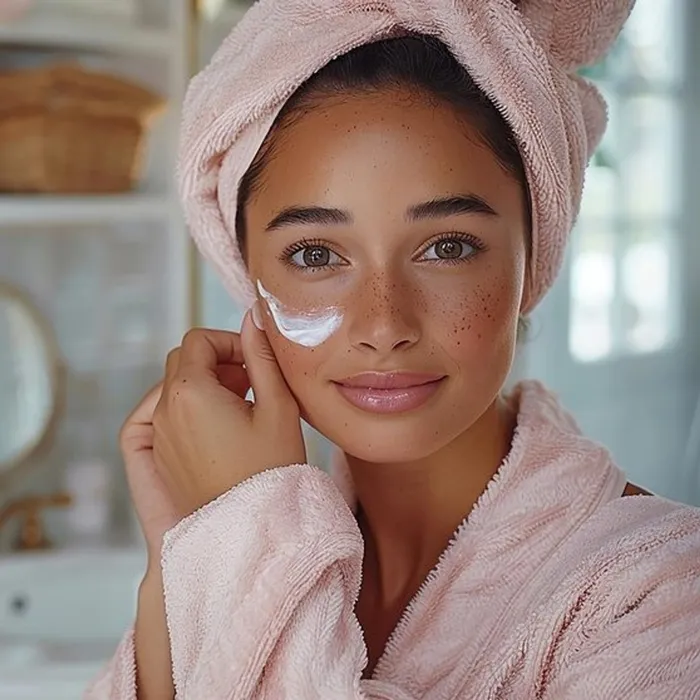Unmasking TikTok skincare trends: The dangers of misinformation and overconsumption

skincare routine, night routine, morning routine, face mask, skin care products Is TikTok a friend or foe in the skincare world?
Image: FreePik
Once a platform for dance challenges, TikTok has evolved into a powerful influencer hub, particularly in the skincare space.
Millions of users share routines, recommend products, and chase flawless skin, but at what cost?
Dermatologist Dr Vanessa Lapiner, warns that while TikTok fosters skincare awareness, it also spreads misinformation and fuels overconsumption.
The rise of misinformation
It’s a common misconception that only extreme skincare trends—like SPF contouring, glass skin, or slugging—spread misinformation.
In reality, much of TikTok’s beauty content is misleading, as young, inexperienced users position themselves as experts.
“Misinformation isn’t always intentional,” says Lapiner. “Many influencers lack proper skincare knowledge and prioritise visuals over accuracy.”
To make content engaging, creators often demonstrate products incorrectly—applying excessive amounts simply because smaller quantities don’t show up well on camera.
Their focus is on aesthetics, not education, which can mislead viewers into overusing or misapplying products.
The power of TikTok’s algorithm
TikTok’s algorithm reinforces the same information repeatedly, making even sceptical users more likely to believe a product or trend works simply because they see it so often.
“TikTok encourages curiosity, which is great,” says Lapiner. “But unfortunately, this curiosity often leads to a cycle of misinformation that then needs to be debunked.”
Overconsumption and the influence of sponsored content
Beyond misinformation, TikTok has created a culture of excessive skincare consumption. Sponsored posts and influencer recommendations drive users to purchase far more products than they actually need.
“Less has always been more when it comes to skincare,” says Lapiner. “Yet I’m hearing from young people who have never used so many products, and their skin isn’t improving.”
For influencers, promoting multiple products means increased sponsorships and engagement, turning skincare advice into a profit-driven industry.
While some content creators genuinely aim to educate, many prioritise viral success and financial gain over scientific accuracy.
The need for reliable skincare guidance
Most skincare influencers lack medical training, meaning even well-intentioned advice can be harmful.
Lapiner’s advice? “Look at multiple sources, and don’t rely solely on social media. Cross-check information with a dermatologist or a reputable expert. Healthy skin isn’t about chasing trends—it’s about consistency and understanding your skin’s unique needs.”
While TikTok can be a fun and informative platform, when it comes to skincare, caution is key. Blindly following viral trends may do more harm than good.
Get your news on the go, click here to join the IOL News WhatsApp channel
IOL Lifestyle
Related Topics: